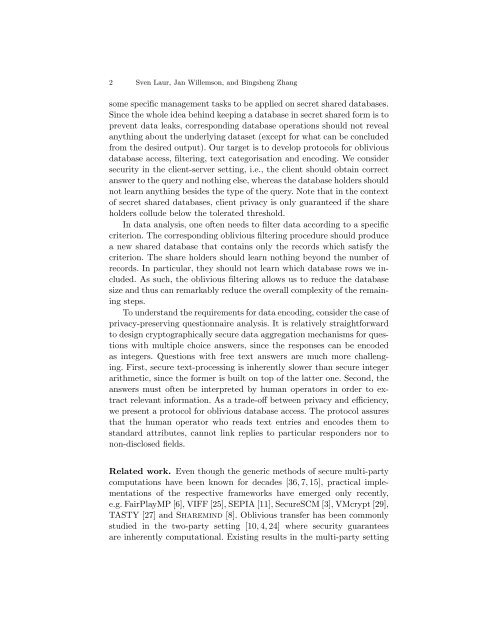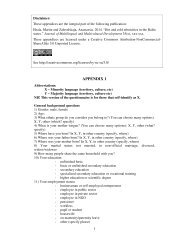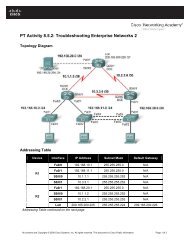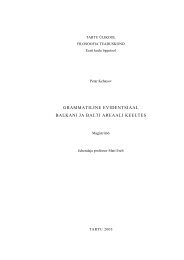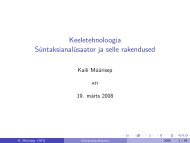Round-efficient Oblivious Database Manipulation
Round-efficient Oblivious Database Manipulation
Round-efficient Oblivious Database Manipulation
You also want an ePaper? Increase the reach of your titles
YUMPU automatically turns print PDFs into web optimized ePapers that Google loves.
2 Sven Laur, Jan Willemson, and Bingsheng Zhang<br />
some specific management tasks to be applied on secret shared databases.<br />
Since the whole idea behind keeping a database in secret shared form is to<br />
prevent data leaks, corresponding database operations should not reveal<br />
anything about the underlying dataset (except for what can be concluded<br />
from the desired output). Our target is to develop protocols for oblivious<br />
database access, filtering, text categorisation and encoding. We consider<br />
security in the client-server setting, i.e., the client should obtain correct<br />
answer to the query and nothing else, whereas the database holders should<br />
not learn anything besides the type of the query. Note that in the context<br />
of secret shared databases, client privacy is only guaranteed if the share<br />
holders collude below the tolerated threshold.<br />
In data analysis, one often needs to filter data according to a specific<br />
criterion. The corresponding oblivious filtering procedure should produce<br />
a new shared database that contains only the records which satisfy the<br />
criterion. The share holders should learn nothing beyond the number of<br />
records. In particular, they should not learn which database rows we included.<br />
As such, the oblivious filtering allows us to reduce the database<br />
size and thus can remarkably reduce the overall complexity of the remaining<br />
steps.<br />
To understand the requirements for data encoding, consider the case of<br />
privacy-preserving questionnaire analysis. It is relatively straightforward<br />
to design cryptographically secure data aggregation mechanisms for questions<br />
with multiple choice answers, since the responses can be encoded<br />
as integers. Questions with free text answers are much more challenging.<br />
First, secure text-processing is inherently slower than secure integer<br />
arithmetic, since the former is built on top of the latter one. Second, the<br />
answers must often be interpreted by human operators in order to extract<br />
relevant information. As a trade-off between privacy and efficiency,<br />
we present a protocol for oblivious database access. The protocol assures<br />
that the human operator who reads text entries and encodes them to<br />
standard attributes, cannot link replies to particular responders nor to<br />
non-disclosed fields.<br />
Related work. Even though the generic methods of secure multi-party<br />
computations have been known for decades [36, 7, 15], practical implementations<br />
of the respective frameworks have emerged only recently,<br />
e.g. FairPlayMP [6], VIFF [25], SEPIA [11], SecureSCM [3], VMcrypt [29],<br />
TASTY [27] and Sharemind [8]. <strong>Oblivious</strong> transfer has been commonly<br />
studied in the two-party setting [10, 4, 24] where security guarantees<br />
are inherently computational. Existing results in the multi-party setting


